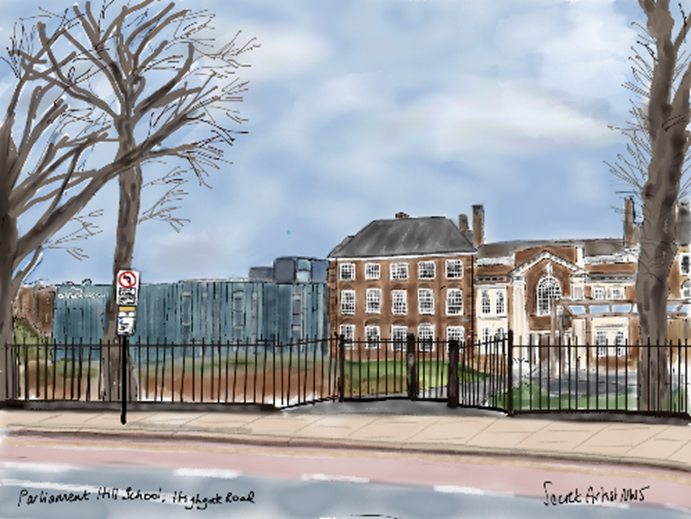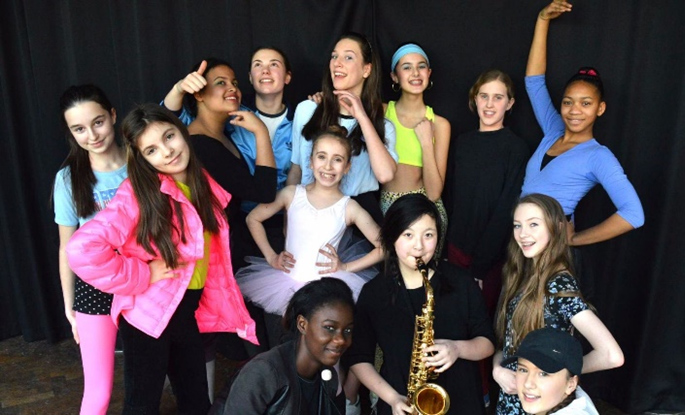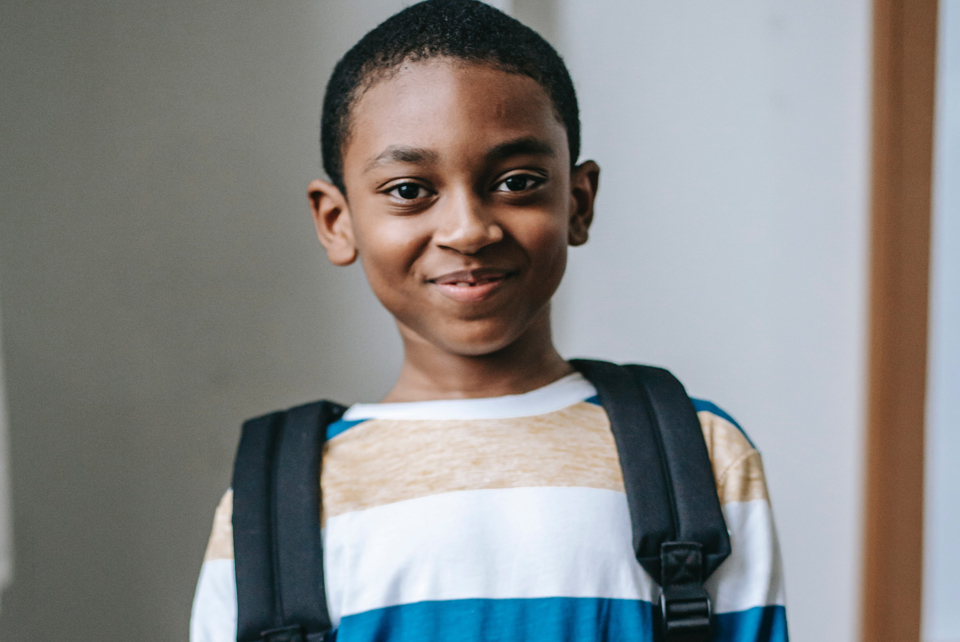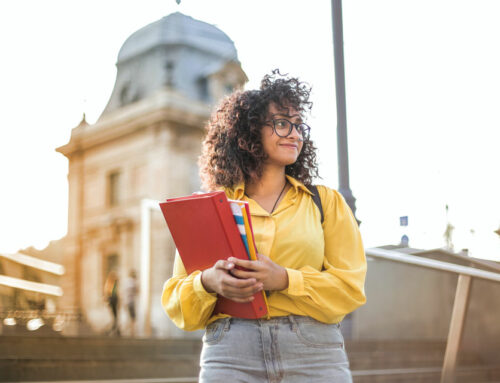Assessment is due a rethink. Our young people deserve an assessment system that goes way beyond focusing solely on academic achievement with a constant eye on outcomes at GCSE and A Level. There is no doubt that academic achievement matters but learning is about so much more than an ability to pass exams. To quote Rachel MacFarlane “The exam system disadvantages the already disadvantaged”. We need something different and inspiring so that all learners can evidence the dispositions they will need to thrive in the world of work.
What Dispositions Do We Want to Develop in our Young People and How do They Know that We Value These?
What dispositions do you value as parents and/or educators? I’m pretty sure that the ability to memorise facts in order to pass an exam, something that comes quite easily to most high potential learners, will not feature very highly! However, the desirable dispositions should not be instead of or in opposition to excellent academic achievement, but in addition, i.e., Results Plus.
So what should we, at home and in schools, be developing, modelling and explicitly valuing? This blog:
- explores thinking on this topic by Guy Claxton, Bill Lucas, Rachel MacFarlane and Bryan Hymer (all part of the Advisory Group of the education movement Rethinking Assessment)
- looks at how one school is developing its approach to ensure that disadvantaged high potential learners, along with everyone else, have the best possible chance of having and realising their high ambitions
- reflects on ways that parents can nurture the dispositions that will provide young people with the skills, attitudes and behaviours they need to enter the world of higher education and work confidently and competently
- signposts some resources and sources of help and ideas.
Desirable Dispositions
Education, be it at home or in schools, should have many and varied desirable outcomes. Yet what are the dispositions we value for our children? This discussion is an important one to have in homes and in schools so that everyone is clear about what matters and what we want our young people to be skilled in as they leave us as young adults. Until we clarify this, it is difficult to work out what and how to teach, what to nurture and what experiences to offer. Then, of course, we need to decide how to ‘assess’ these dispositions so they are seen as explicitly valued.
Some of the dispositions that are consistently at the top of any list are curiosity, rational scepticism, imagination, control over attention, intellectual humility (hold your knowledge tentatively), determination/grit/tenacity and collaboration. There are very few dispositions that cannot be developed; babies aren’t born with an ability to collaborate or to focus attention on what matters (but anyone who has watched a baby learning to walk can’t fail to be impressed by their determination and resilience).
Arts subjects provide a wealth of opportunities to build desirable dispositions, so we need to champion these areas of the curriculum. Art, Dance, Design and Technology, Drama, Music and Photography are not add-ons – they are key parts of a child’s entitlement and fundamental to the all-round development of young people.
Vocabulary
Have we got the vocabulary right? Guy Claxton suggests that we should avoid being trapped by words such as ‘measure’ and ‘assess’ as these restrict assessment to quantitative measures. Business, however, often uses qualitative outcomes, e.g. in performance management/appraisal and this makes it easier to focus on the quality of the things we value, i.e. the dispositions we identified.
Guy suggests replacing ‘assessment’ with ‘evidencing’ and Bryan Hymer adopted this in East London’s School 21 during his time as Headteacher, as it is a more neutral word which does not pre-judge. Bryan also adopted the term, ‘beautiful work’ which tells a story without linking to grades or levels, can be applied to all areas of the curriculum and may also refer to desirable dispositions. The nicest thing about ‘beautiful work’ is that it invites discussion which is exploratory and developmental, leading to a shared understanding. In contrast, levels and grades are not open for discussion, they are predetermined and capped.
The Skills Builder
So, how do we evidence desirable dispositions? To do this well, each identified disposition needs drilling down into, so understanding and development becomes granular – e.g. creativity is far too broad a term to know where to start or even to be clear what is meant by it. The Skills Builder Universal Framework does just that. It is a wonderful tool for explaining, understanding and developing dispositions. To take one example, Listening Skills takes learners through 15 developmental stages:
- I listen without interrupting
- I listen critically and go way beyond the way speakers speak or act to objectively
evaluate different perspectives.
To make this tool even more useful, each stage is backed up with explanations, building blocks, why it’s important, advice for individuals and useful questions to ask. It provides an amazing starting point for parents and teachers with much of the work done for you!
Using Assessment and Reporting More Strategically
At Parliament Hill School in the London Borough of Camden, a fully comprehensive state school, a couple of simple changes have started the journey to rethinking assessment at Key Stage 3 and would be easy to replicate across all phases.

Getting It Right Every Time (or Most of the Time)
Collecting evidence about learning has moved to ensuring learners have experiences of being successful. An example of this is giving the learners five questions in advance that they will be quizzed on in the next lesson. They know exactly what to learn, it’s a small amount of learning, they know what the questions will be and everyone should be able to get 100% (or at least 80%). Using quizzes ensures the process is low-stakes and non-threatening. Kahoots is free to download and provides a good format for multiple choice questions.
This strategy enables learners to see the relationship between their study skills and great outcomes. It has been particularly important for many disadvantaged learners, building confidence whilst revisiting learning frequently to aid long-term memory. This is easy to personalise so high potential learners are stretched and challenged.
This doesn’t mean that more traditional assessments, e.g. mocks and practice essays are not important – just taken as read! However, it would be great if exams were used to demonstrate understanding of the learning rather than simply memorising facts, dates, equations…
Conferencing
Another successful development has been Year 7 Conferencing which takes place in early July each year. Year 7 has a settling-in parents’ evening with subject teachers in the Autumn Term and we wanted something different and learner-led at the end of the year, both reflecting on their first year at Parliament Hill School and looking forward to Year 8. The model for this is:
- The Achievement Team Leader (Head of Year) creates a template for the PowerPoint presentation: introduction, things I am proud of, enrichment activities I have taken part in, activities I enjoy, skills I’ve developed and areas I want to work on next year.
- Learners use Tutor Time to prepare the presentation for their parents and a teacher.
- The presentation is sent to the hosting teacher.
- On the Conference Evening, the teacher provides a laptop with the uploaded presentation.
- The learner presents their learning to their parent(s) and the teacher.
- The parent(s) and teacher ask questions for clarification and to refine the areas to develop which are recorded by the teacher.
The Year 7 conferencing is a highlight of the school year with parents commenting on how useful and enjoyable it is. It helps Year 7 reflect, take more ownership of their learning in and out of the classroom, and provides time to discuss their next steps with their parents and a teacher together.
So, How Do We Evidence the Desirable Dispositions?
If assessments (in whatever form) test the learning of knowledge, how do we evidence the dispositions we want young people to develop? Start by clarifying why you are doing this. Is it to reassure parents? To provide data for the School Development Plan? To satisfy external monitoring such as Ofsted? For appraisal? Are there any things you may want to monitor but not assess, e.g. well-being?
Or are we aiming to create powerful learners? What we talk about and what we ask for feedback on is what learners believe we value. This is true at home as well as in schools.
Then consider what use the evidence is going to be to someone else and what format this should take. More and more employers now want dispositions which aren’t routinely taught or developed in UK universities.
The Rethinking Assessment group talks about multi-modal assessment and cites the many examples of ways to evidence dispositions from Early Years settings or other sectors such as engineering, medicine or PhD students, e.g. vivas, observation, computer-based simulations, tutorial or discussion groups, literature reviews, presentations, testimonials, examples of beautiful work, demonstration, mentoring younger children, digital badges, and using art, poetry, music or drama to evidence a disposition. Exeter University has examples of 10 ways to evidence learning and dispositions of engineering and medicine students.
Ideally, the process of evidencing dispositions should help develop them and allow learners to self-assess, clearly signposting the next steps. It needs to be a strengths-based model, seeking out what learners can do and have developed. Evidencing the desirable dispositions must not be a system which seeks out weaknesses, so that young people, particularly disadvantaged young people who can be disadvantaged further by a punitive education system, are able to build confidence and self-esteem along with developing the dispositions needed for their next steps.
When starting this approach, embed the development of desirable dispositions into subject areas; later on, find ways to make skills more transferrable. Use day-to-day micro-assessments of dispositions in the classroom/home, e.g. teacher or parent/learner or older/younger learners review the progress using a scaling system, identifying the small steps to develop dispositions further. The scaling system involves the learner deciding where on a scale of 1-10 they feel they are in developing a skill (1 being starting out and 10 representing a sophisticated grasp and use of the skill evidenced across the curriculum). It doesn’t matter where on the scale the learner places herself/himself – it’s about what needs to happen next. If the learner says 4, you discuss how they might move this score to 4.5 or 5, creating a plan of what they will do next.
Avoid this becoming a grid of incremental dispositions; it needs to be personalised small steps, granular and clear in how and when to implement the actions agreed. The aim is to evidence the dispositions curriculum-wide, e.g. ‘How are we going to see if X’s questioning is transferring, robust and improving in sophistication?’
At Parliament Hill School, it is still definitely a work in-progress. Discussions are ongoing about how to create an entitlement curriculum so that every learner, whatever their background, has full and equal access to a range of experiences. This requires an inspiring enrichment programme, within subject areas to deepen learning and develop strong interests, and outside of subject areas to expose learners to rich opportunities to build cultural capital and take part in activities beyond the curriculum. Importantly, it requires robust monitoring of uptake to ensure all groups in the school community are participating in experiences that they enjoy and that support the development of desirable dispositions.
As well as planning the offer, Parliament Hill School is considering how to evidence desirable dispositions. We trialled a ‘Blossom Project’ where all learners had to use ‘leaves’ in their planners to note down activities they had taken part in or values they had demonstrated. However, this was too dependent on individual tutors and we now know this has to be driven by the Senior Leadership Team and embedded across every subject, year group, drop-down day and enrichment programme. It also needs to be based on a clear understanding of the desirable dispositions every learner needs as they leave us for their next steps in life, which came out of the work of the whole school community in creating a model of the “Parli Learner” https://www.parliamenthill.camden.sch.uk/What-are-Parli-learners-like/ (attitudes, values, skills and achievements). This now needs refining and breaking down into steps in and out of the curriculum.
At Parliament Hill, everyone should be part of the school musical at least once during their time in school – on stage or backstage.

To evidence the development of the desirable dispositions, we are currently exploring a “Parli Passport” with a minimum entitlement for every learner, e.g. enrichment activities and clubs, links with professionals and businesses, opportunities for leadership, presentations, visits to galleries and museums, a residential, volunteering or fundraising. Approximately half of our high potential learners are from disadvantaged backgrounds so expanding their exposure to the experiences and opportunities that come so easily to middle class learners is an important part of the school’s high learning potential strategy.
What’s Going on in Other Parts of the World?
- Singapore has published its ‘Desirable outcomes for education’ with no mention of excellent results as they take that as read.
- PISA (Programme for International Student Assessment) is moving away from just assessing how 15-year-olds perform across the world in single subjects like English, Maths and Science but are now looking at assessing a variety of learning skills and dispositions. In 2022 they will introduce their creative thinking framework.
- Canada is working with 1300+ schools in 8 countries to enable learners and their teachers to track the development of capabilities across a range of combined knowledge and skills.
- In New York, a group of schools are working on a system based on in-depth literacy, mathematical problem-solving, application of the scientific method, social studies research, a span of mediums for exhibiting learning, and a chance for learners to have proud ownership of their work.
- Victoria in Australia tests 15-year-olds annually on their progress in critical and creative thinking, using documents showing what the development of capabilities looks like in four key areas.
- British Columbia’s Core Competencies are sets of intellectual, personal, and social and emotional proficiencies needed to engage in deep, lifelong learning.
In an Ideal World, What Would Evidence Look Like?
Guy Claxton, Rachel MacFarlane, Bryan Hymer and Bill Lucas were recently asked what they felt a rethink of assessment could look like in an ideal world. Here’s their response:
- Everyone would leave school/home education settings with a URL link to tell the story of them as a learner
- Teachers and parents would be able to have meaningful conversations about learning and disposition development as the focus on grades would be removed. This would enable parents to be more engaged in supporting their child’s learning
- Desirable dispositions would be talked about and explicitly valued (alongside exam grades whilst the system still exists)
- At regular intervals, learners would present and discuss their online portfolio with a chosen, respected member of community, with an in-depth interview taking place before a learner moves to the next stage of education.
What Now?
Some suggestions for action:
- Explore Skills Builder and Rethinking Assessment
- Clarify what the desirable dispositions are for all young people in your care
- Make sure everyone in the school community, including parents, know and understand what desirable dispositions are, why they are important, how to nurture them and how to talk about developing them
- Embed the teaching of the dispositions across the curriculum and pastoral programme
- Talk about dispositions, explicitly value them and model them
- Develop an enrichment programme and monitor uptake so that every learner has a rich, inspiring experience which builds cultural capital, desirable dispositions and exposes them to new experiences
- Create a simple yet valued evidencing system which is useful for the learner and all other identified users
- Recognise and celebrate the progress of learners in acquiring the desirable dispositions
- Personalise the journey for learners
- Keep going! Desirable dispositions weren’t built in a day!
Further Information and Sources of Support
- Seven principles for a fair and relevant assessment system https://blogs.ucl.ac.uk/ioe
- Skills Builder Universal Framework, developed in collaboration with the Confederation of British Industry (CBI), Chartered Institute of Personnel and Development (CIPD), Gatsby Foundation, Business in the Community, Careers & Enterprise Company (CEC) and the EY Foundation https://www.skillsbuilder.org/
- Rethinking Assessment https://rethinkingassessment.com/
- Singapore Desired Outcomes of Education https://www.moe.gov.sg/education-in-sg/desired-outcomes
Joy Morgan is the Assistant Headteacher and Specialist Leader of Education at Parliament Hill School, London. Parliament Hill School received the Above and Beyond Awards Effective Provision in School Award in 2019.






